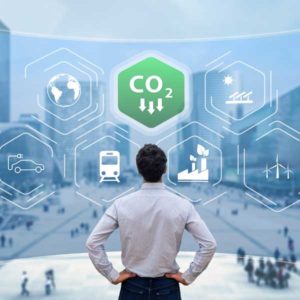 Americans in both parties can see economic, technological, and environmental benefits to seeking alternative and efficient clean energy innovation.
Americans in both parties can see economic, technological, and environmental benefits to seeking alternative and efficient clean energy innovation.
One measure attracting substantial bipartisan support would address two significant obstacles to providing the country with cheaper and cleaner electricity. First, sources of renewable electricity like wind and solar are difficult to rely on because their production is so variable. The amount of energy produced changes with the weather. Unless we have a way of storing the energy produced, we will continue to use sources that are expensive and have a significant carbon footprint. Second, the sites where wind and solar electricity can be most efficiently generated are often a significant distance from where demand is. Our outdated electrical grid is not able to convey the electricity efficiently over long distances.
In 2019, Senators Susan Collins (R-ME) and Martin Heinrich (D-NM), along with Representatives Bill Foster (D-IL) and Jaime Herrera Butler (R-WA), introduced the Better Energy Storage Technology (BEST) Act to address both the storage and transmission obstacles to cheaper and cleaner electricity. It is likely that some form of this bill will be reintroduced in the 117th Congress. Following the strategies used in the Department of Energy’s SunShot Initiative that decreased the price of solar by 75%, the BEST Act would authorize $300 million over five years to reduce the cost of promising grid-scale energy storage systems. The BEST Act would direct the Department of Energy to develop a strategic plan and cost targets for grid-scale energy storage, require research coordination on commercially viable storage systems among federal agencies and our National Laboratories, and support five demonstration projects.
Another energy and climate bill attracting bipartisan support is the Storing CO2 And Lowering Emissions (SCALE) Act introduced on March 17, 2021, by Senators Chris Coons (D-DE) and Bill Cassidy, M.D. (R-LA) and Representatives Marc Veasey (D-TX) and David McKinley (R-WV). The bill would address the U.S. lag behind other countries in carbon capture and storage (CCS) technology by supporting the buildout of infrastructure to transport CO2 from the sites where it is captured to locations where it can be used as feedstock in manufacturing processes. For example, captured CO2 is useful in the production of concrete and polymers used in plastics and pharmaceuticals. For captured carbon not used as industrial feedstocks, the act would support more secure and efficient means of transporting and sequestering it underground. Advocates argue that the SCALE Act would help the U.S. develop a crucial tool in the fight against climate change while also supplying commercially valuable feedstocks and creating regional economic opportunities and jobs

